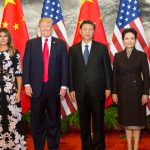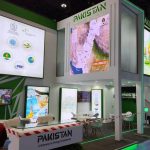How the Economy of Pakistan is sinking like a Titanic
By Chronicler
Islamabad
Pakistan’s economy is in deep trouble and all economic indicators are suggesting that there is no immediate respite for it for the time being.
However, it hasn’t started sinking in a year or months. This process had started years ago after the regime of General Musharraf.
Currently Pakistan’s foreign exchange reserves stand at around $4.5 billion which are hardly enough to meet its one month import bill.
No immediate respite yet for Pakistan’s economy: Despite Pakistan’s hectic efforts to get financial assistance from the support fund of the International Monetary Fund (IMF), there has been no major breakthrough yet into this reference.
Pakistan needs immediate support funds from the international financial institutes. It is also looking towards friendly countries like the Kingdom of Saudi Arabia, United Arab Emirates (UAE) and China to get financial assistance.
PTI believes Pakistan is at the verge of default: The deputy Speaker Punjab Assembly, Wasiq Qayuum Abbasi during a chat with this scribe recently had painted a very bleak picture of Pakistan’s economy.
He was of the view that the IMF would not release any tranche despite levying more conditions on Pakistan.
The main leadership of PTI also believe that Pakistan’s economy is also at the verge of collapse.
However, there is a need to initiate a serious debate as to why and How the Economy of Pakistan started sinking like a Titanic?
Details of factors behind derailing of economy: There are several factors behind this phenomenon of the sinking economy of Pakistan. During General Musharraf’s regime, the foreign exchange reserves were around $27 billion.
Pakistan was a partner in the US war against terrorism and the US supported Pakistan financially to a great extent.
After Musharraf’s regime, democratic setups took charge of the country. First Pakistan Peoples Party (PPP) government ruled the country for five years.
Later on Pakistan Muslim League Nawaz (PML-N) came into power in 2013 and it ruled the country till 2018. Then came into power Pakistan Tehreek-e-Insaaf (PTI). This was the PTI led government during the term of which the national economy started collapsing badly.
But it was not presenting the rosy picture as well when PML-N and PPP were in power.
Since the change of regime of Musharraf, the priorities of the US had changed about Pakistan. In fact they had started deteriorating during the period of General Musharraf.
The US had already achieved what it had wanted from Pakistan and afterwards the rest of things are history.
During the period of PPP’s government, the 18th Amendment in the Constitution was approved by the Parliament of Pakistan. This was a landmark achievement politically.
However, it had some negative repercussions as well. The centre devolved a major chunk of its powers to the provinces.
The 18th Amendment brought important institutional changes and the fiscal powers of the provinces were enhanced. Under the 18th Amendment, the provinces now have greater access to domestic or foreign borrowing.
It had the potential for a new revenue sharing system and fiscal rules, including revenue sharing arrangements and exploring fiscal rules for provincial governments. Actually this arrangement started affecting the financial resources of the centre.
Industrial units started shutting down: Even during the period of General Musharraf a lot of manufacturing industrial units shut down in Pakistan, most of which were functioning in different industrial areas of Karachi.
This factor impacted the exports of the country. Many industries were shifted to other countries from Pakistan. Many workers were rendered jobless but issues like it was not raised on the required forums as much as was needed.
Later on the parity between exports and imports started trembling which became very obvious during the period of PML-N.
During the regime of PML-N, the import bill had become almost double compared with the export bill of the country. Then the government was of the view that the import bill was rising due to development projects related with CPEC.
Economy matters during the regime of PTI: Later on PTI came into power in 2018 after the general election and since then the economy has been derailing. The PTI led government was very late when it had decided to get the IMF for financial support and Asad Umar was the finance minister at that time.
During the last days of the PTI in power, it made an agreement with the IMF to get the required financial support. It agreed to some conditions of the financial institute which had a drastic impact on the general public.
When the former premier felt that his government was about to fall, he made some decisions which were against the agreement with the IMF. He was lauded by the general public for keeping the prices of petroleum products steady besides not increasing the price of the electricity in the country. However, since these steps were against the agreed programme of IMF, the funds availability to Pakistan by it was delayed by it.
Then the PML-N led government came into power and since then, the economy has been in shackles. Now the government is trying to get required finances from the IMF and other venues but most of its attempts have not brought the required results yet.
Now there are talks that the country is about to default by the opposition parties. However, the finance minister Ishaq Dar is optimistic that the country would come out of this crisis soon.
Ends


































